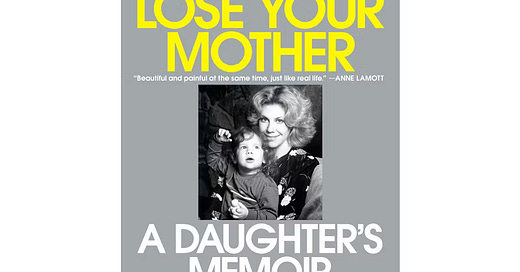And Don't Have Any Kids Yourself
In 1973, Erica Jong wrote a novel telling women they could have big, creative lives. Molly Jong-Fast's memoir tells women something very different.
Many years ago, when my older daughter was a toddler and my younger daughter hadn’t yet been conceived, a reporter came to my house in Philadelphia to interview me. I’d prepared myself for questions about my writing, process, my activism, my views on why popular women’s writing was so little reviewed and respected.
I wasn’t prepared for this reporter’s first question.
“Where is your daughter?” she demanded, peering around suspiciously as if I might have hidden my child in a cupboard or a closet.
It was summertime. I was starting my book tour the next morning. My daughter, who was two years old, was in Cape Cod, with her father, and her grandmother. And I was planning on spending less than two weeks on the road! With breaks to go home and see her!
But when I said all of this, my interlocutor was clearly unimpressed. “So you feel okay about leaving her?” she asked, pen poised, lip curled.
The truth was, I had, indeed felt okay about it, up until that moment. In 2006, I didn’t see anything wrong with having a baby, a new book, a supportive family (it takes a village, after all) and a burgeoning career. I was proud of myself! I was having it all!
Except, clearly, that reporter – who was maybe ten years older than I was, who was a journalist and an author, but who didn’t have biological children – had decided that I was Doing It Wrong. I was a bad mother. She was prepared to announce this fact in print. And I couldn’t imagine anything worse.
I called my publicist and said, I have a bad feeling about this. My publicist got the interview cancelled. I tried to shake it off and move on.
But I’ve been thinking that interview, and that reporter, a lot lately – and about how women judge one another, as mothers and as writers; the way we judge ourselves, as I’ve read How to Lose Your Mother, the scorched-earth memoir by Molly Jong-Fast that considers Erica Jong’s work as a mother and a writer, and finds them both wanting.
Erica Jong is the novelist and poet, the author of the 1970s classic Fear of Flying. Molly Jong-Fast is her daughter, a sometimes novelist and memoirist who’s made her reputation as a prolific social media user; a woman who spun the straw of anti-Trump tweets into the gold of MSNBC appearances and a “Vanity Fair” column. Jong-Fast’s memoir covers her “annus horribilis,” a period that begins when, she writes, “our very elderly diabetic dog, Spartacus, had had a grand mal seizure on our bed…and bled all over the fancy quilt I bought with the money from my podcast.”
It’s a bad year, the kind familiar to many people in the thick of middle age. Jong-Fast’s husband is diagnosed with cancer, her stepfather’s living with Parkinson’s, and her famous mother is diagnosed with dementia. Jong-Fast, Erica’s only child, is left to dismantle the family home, manage her husband’s treatment, and, eventually, to move her mother and her stepfather into a care facility. Eventually, her husband recovers. Eventually, her stepfather dies, while her mother continues on, even as she fades into the land of dementia, “like a line on a shaken Etch a Sketch.”
This is not a memoir that decorously draws the curtains on a sick husband (we learn he develops a smell), or an eighty-three-year-old mother who’s unsober, unbathed and frequently undressed, living in an apartment that reeks of urine (dog and human, Jong-Fast takes pains to point out). Had Jong-Fast been with Noah in his vineyard, instead of politely turning away from his drunkenness, you get the impression she would have thrown open the tent flaps and sold tickets to anyone who’d survived the Flood.
Keep reading with a 7-day free trial
Subscribe to The Inevitable Substack to keep reading this post and get 7 days of free access to the full post archives.




